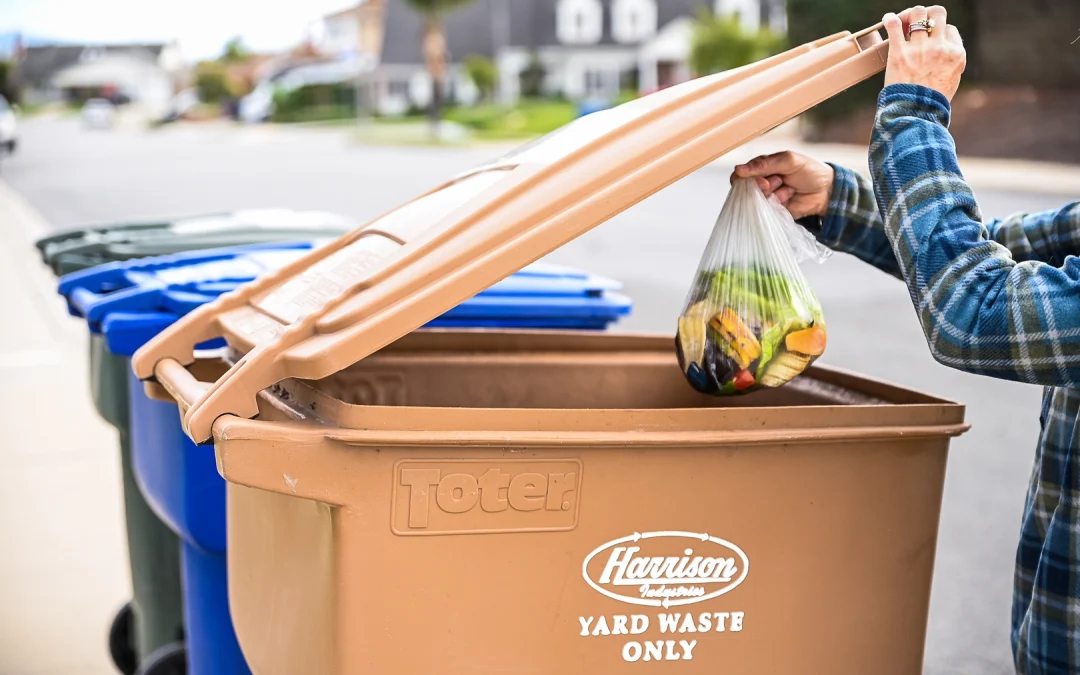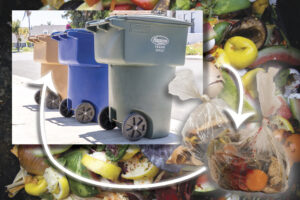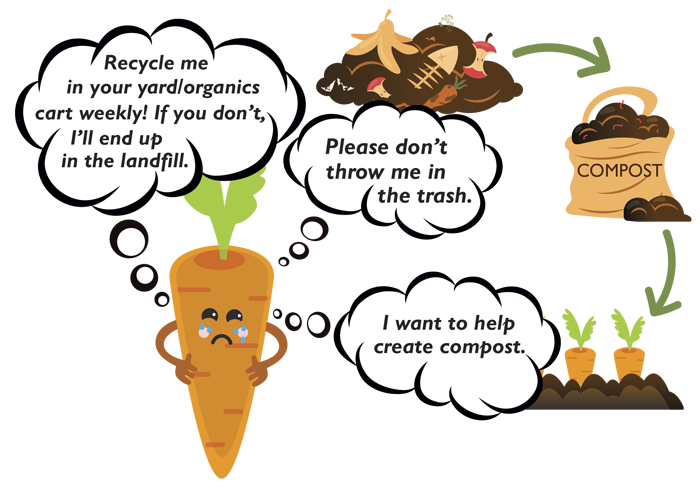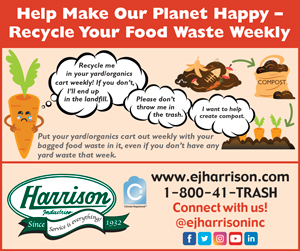
Food Waste Recycling: An Urgent Matter
Food Waste Recycling: An Urgent Matter
Within the next 10 years, our planet’s temperature is likely to reach the point of no return unless we take widespread action to reduce global warming, the U.N. Intergovernmental Panel on Climate Change warned in a March report. Heat waves, famines and other extreme climate disasters could kill millions of people, and at that point there will be little we can do about it, the report found.
So, what can you do immediately and easily to fight climate change? The answer is simple: Recycle food waste and other organic materials.
The state of California began last year to require the diversion of food waste from landfills, because anaerobic decomposition of organic materials at landfills creates methane, a greenhouse gas 84 times more potent than carbon dioxide when it comes to global warming.
Greenhouse gas pollution emitted by U.S. landfills is equivalent to that produced by 66 million gas-powered passenger vehicles a year, or by 79 coal-fired power plants, the nonprofit, nonpartisan Environmental Integrity Project said in a May report called “Trashing the Climate: Methane from Municipal Landfills.”
“Food waste, in particular, is a growing problem that can be addressed,” says the report, noting Americans throw out about 40 percent of their food. “If wasted food were a country, it would be the third-largest emitter of global greenhouse gases, behind China (21 percent) and the United States (13 percent),” the report says.

Harrison Industries began a pilot program
for commercial food waste recycling years ago and added a residential program in 2022. Participation is not only mandatory – it’s an urgent necessity.
“We’ve faced two droughts in 10 years, fires and now floods. We have to work together to fight climate change in every way we can,” Rachel Machi Wagoner, director of the California Department of Resources Recycling and Recovery, recently told the Sacramento News & Review.
“Not everybody’s going to be able to go out and buy an electric vehicle tomorrow,” she said, but “everybody can throw their organic waste” in a recycling bin.
For more information about food waste recycling and the state legislation that mandates it, visit ejharrison.com/food-waste.



